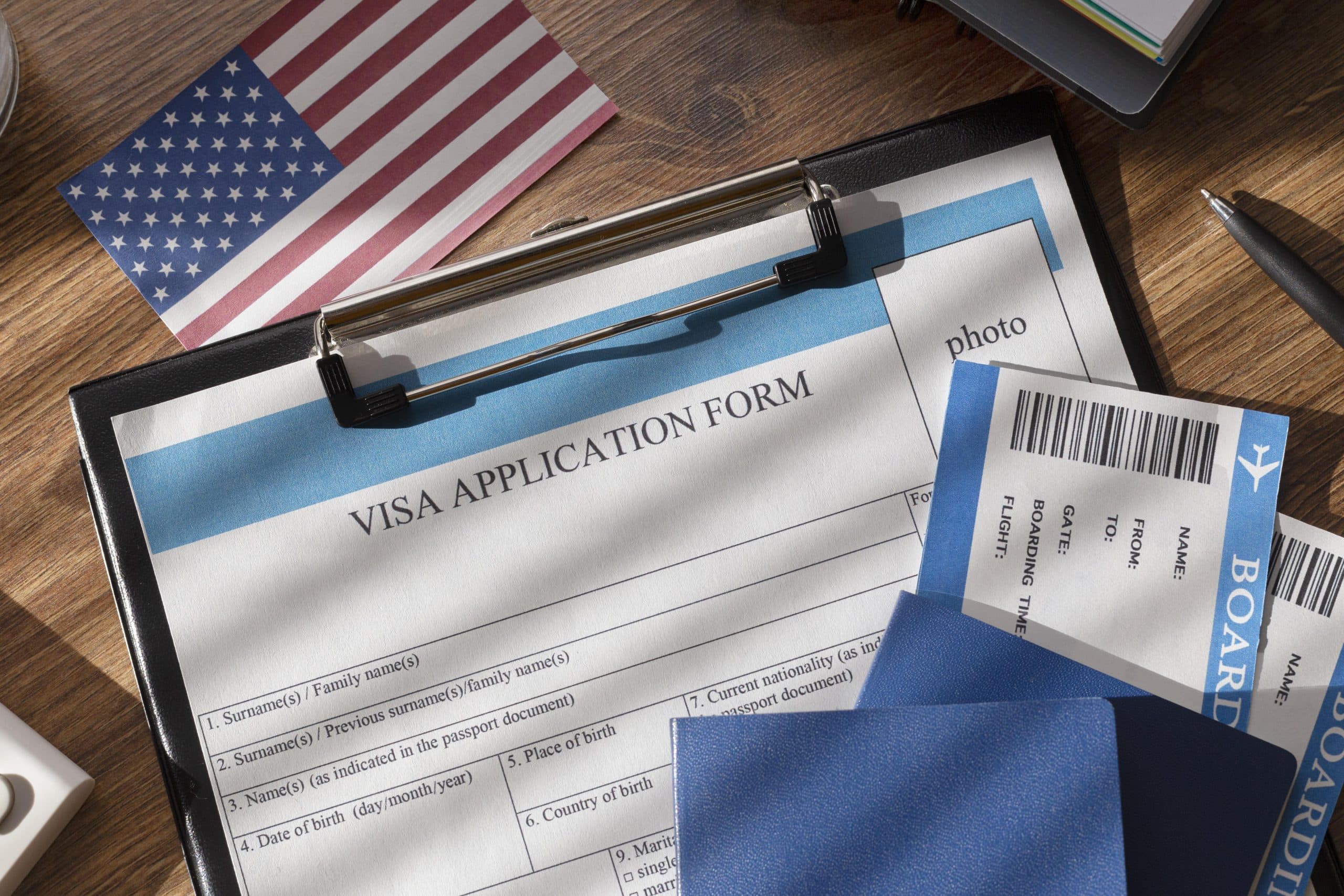In 2024, the H-2B visa program is set to undergo significant changes, offering expanded opportunities for temporary foreign workers in the United States. This move has the potential to unlock new avenues for businesses across various industries, alleviating their labor shortages and helping them thrive. In this article, we will delve into the details of the expanded H-2B temporary visas, exploring how this development can benefit both employers and foreign workers.
Under the new regulations, the H-2B visa program will see an increase in the number of available visas, enabling more businesses to fill their seasonal and temporary labor needs. This expansion opens up possibilities for industries such as hospitality, landscaping, construction, and others heavily reliant on seasonal workers. By understanding the requirements, application process, and benefits associated with these temporary visas, businesses can navigate the regulations and leverage this opportunity to their advantage.
Join us as we dive into the world of expanded H-2B temporary visas, shining a light on the potential they hold for employers and foreign workers alike. Stay tuned for insights and practical tips on taking full advantage of these new opportunities.
Overview of the H-2B Visa Program
The H-2B visa program is a temporary non-immigrant visa program that allows U.S. employers to hire foreign nationals for temporary or seasonal work when there is a shortage of available American workers. This program has been instrumental in meeting the labor needs of various industries, particularly those with high seasonal demands.
Under the H-2B visa program, employers must demonstrate that there are no qualified U.S. workers available for the job and that the employment of foreign workers will not adversely affect the wages and working conditions of American workers. The program has been subject to a cap, limiting the number of visas available each fiscal year.

Changes to the H-2B Visa Program for 2024
In 2024, the H-2B visa program will undergo significant changes to address the labor shortages faced by many industries. The expanded H-2B temporary visas will provide businesses with increased opportunities to fill their seasonal and temporary labor needs. This expansion aims to support industries that heavily rely on seasonal workers, such as hospitality, landscaping, construction, and more.
The key change in the program is the increase in the number of available visas. This means that more employers will have the chance to hire foreign workers to meet their business demands. By expanding the H-2B visa program, the government aims to stimulate economic growth, ensure the viability of businesses, and maintain a stable workforce.
Benefits of the Expanded H-2B Temporary Visas
The expanded H-2B temporary visas offer several benefits for both employers and foreign workers. For employers, these visas provide a solution to their labor shortages, allowing them to maintain productivity and meet customer demands. By hiring temporary foreign workers, businesses can ensure the smooth operation of their seasonal operations and avoid disruptions caused by a lack of available labor.
Additionally, the increased number of available visas enables employers to tap into a wider pool of talent. This can be especially advantageous for industries that require specialized skills or knowledge. With access to a larger labor pool, businesses can find the right workers to fill their specific job requirements, enhancing their efficiency and competitiveness.
For foreign workers, the expanded H-2B temporary visas present an opportunity to gain valuable work experience in the United States. These visas allow individuals to immerse themselves in a new culture, develop their skills, and earn a competitive wage. The experience gained through the H-2B visa program can open doors to future employment opportunities and career growth, both in the U.S. and abroad.

Eligibility Requirements for the Expanded H-2B Temporary Visas
To be eligible for the expanded H-2B temporary visas, both employers and foreign workers must meet certain requirements. Employers must demonstrate that they have a legitimate need for temporary workers and that they have made efforts to recruit American workers. They must also provide proof that the employment of foreign workers will not adversely affect the wages and working conditions of U.S. workers.
Foreign workers, on the other hand, must possess the necessary skills and qualifications required for the job. They must have a valid job offer from an eligible employer in the United States and demonstrate their intent to return to their home country upon the completion of their temporary employment.
- To qualify for H-2B nonimmigrant classification, the petitioner must establish that:
- There are not enough U.S. workers who are able, willing, qualified, and available to do the temporary work.
- Employing H-2B workers will not adversely affect the wages and working conditions of similarly employed U.S. workers.
- Its need for the prospective worker’s services or labor is temporary, regardless of whether the underlying job can be described as temporary. The employer’s need is considered temporary if it is a(n):
- One-time occurrence – A petitioner claiming a one-time occurrence must show that it has:
- An employment situation that is otherwise permanent, but a temporary event of short duration has created the need for a temporary worker.
- Not employed workers to perform the service or labor in the past, and will not need workers to perform the services or labor in the future;
- One-time occurrence – A petitioner claiming a one-time occurrence must show that it has:
OR
- Seasonal need – A petitioner claiming a seasonal need must show that the service or labor for which it seeks workers is:
- Traditionally tied to a season of the year by an event or pattern; and
- Of a recurring nature.
Note: You cannot claim a seasonal need if the time period when you do NOT need the service or labor is:
- Unpredictable;
- Subject to change; or
- Considered a vacation period for your permanent employees.
OR
- Peak load need – A petitioner claiming a peak load need must show that it:
- Regularly employs permanent workers to perform the services or labor at the place of employment;
- Needs to temporarily supplement its permanent staff at the place of employment due to a seasonal or short-term demand; and
- The temporary additions to staff will not become part of the employer’s regular operation.
OR
- Intermittent need – A petitioner claiming an intermittent need must show that it:
- Has not employed permanent or full-time workers to perform the services or labor; and
- Occasionally or intermittently needs temporary workers to perform services or labor for short periods.
H-2B petitioners must also provide a single valid temporary labor certification from the U.S. Department of Labor (DOL), or, if the workers will be employed on Guam, from the Guam Department of Labor (Guam DOL).
ALERT: As of Jan. 9, 2024, USCIS has received enough petitions to reach the additional 20,716 H-2B visas made available for returning workers for the first half of FY 2024 with start dates on or before March 31, 2024, under the FY 2024 H-2B supplemental visa temporary final rule.
We will reject and return any cap-subject petitions received after Jan. 9, 2024, for H-2B returning workers with start dates on or before March 31, 2024, together with any accompanying fees. Read more: Cap Reached for Additional Returning Worker H-2B Visas for the First Half of FY 2024.
ALERT: The Department of Homeland Security through the U.S. Citizenship and Immigration Services, and the Department of Labor, published a temporary final rule making available an additional 64,716 H-2B temporary nonagricultural worker visas for fiscal year 2024, on top of the statutory cap of 66,000 H-2B visas that are available each fiscal year. More information is available on the Temporary Increase in H-2B Nonimmigrant Visas for FY 2024 webpage.
Application Process for the Expanded H-2B Temporary Visas
The application process for the expanded H-2B temporary visas involves several steps. Employers must first obtain a temporary labor certification from the Department of Labor (DOL), which verifies that there are no qualified U.S. workers available for the job. Once the labor certification is obtained, employers can file a petition with U.S. Citizenship and Immigration Services (USCIS) to request the H-2B visa for their foreign workers.
Foreign workers must also complete certain steps to secure the H-2B visa. This includes providing documentation of their qualifications, passing a medical examination, and attending an interview at the U.S. embassy or consulate in their home country.
Tips for a Successful H-2B Visa Application
To increase the chances of a successful H-2B visa application, both employers and foreign workers should be prepared and thorough in their documentation. Employers should ensure that their labor certification is accurate and complete, providing all necessary supporting evidence. They should also submit the petition to USCIS well in advance of the expected employment start date to allow for processing time.
Foreign workers should carefully review the application requirements and gather all required documentation. This includes proof of qualifications, medical examination records, and any additional supporting evidence requested by the embassy or consulate. It is also important to present themselves professionally during the visa interview, demonstrating their genuine intent to return to their home country after the completion of their temporary employment.

Potential Industries and Job Opportunities for H-2B Visa Holders
The expanded H-2B temporary visas create new job opportunities for foreign workers in various industries. Industries such as hospitality, landscaping, construction, and agriculture heavily rely on seasonal workers and are likely to offer a wide range of positions to H-2B visa holders.
In the hospitality industry, H-2B visa holders can find employment in hotels, resorts, restaurants, and amusement parks. In landscaping, opportunities may be available for positions such as groundskeeper, gardener, or irrigation technician. The construction industry may offer jobs in areas such as carpentry, painting, or general labor. Agriculture, including crop harvesting and farm work, is another sector that often seeks H-2B visa workers.
Challenges and Considerations for H-2B Visa Employers and Workers
While the expanded H-2B temporary visas offer new opportunities, there are also challenges and considerations that employers and workers should be aware of. Employers must navigate the complex application process and ensure compliance with all regulations to avoid penalties or visa denials. They must also carefully manage their workforce, including providing appropriate housing and transportation for H-2B visa workers.
For foreign workers, adapting to a new culture and working environment can be challenging. They may face language barriers, cultural differences, and homesickness. It is important for workers to be prepared for these challenges and seek support from their employers and fellow workers. Additionally, workers should familiarize themselves with their rights and responsibilities under the H-2B visa program to ensure fair treatment and avoid exploitation.
Conclusion and Key Takeaways
The expanded H-2B temporary visas for 2024 present exciting opportunities for both employers and foreign workers. By understanding the changes to the H-2B visa program, businesses can leverage this expansion to address their labor shortages and maintain productivity. Foreign workers can benefit from valuable work experience, competitive wages, and the potential for future career growth.
As the application process for H-2B visas can be complex, it is important for employers and foreign workers to be diligent and thorough in their documentation. By following the requirements and guidelines, they can increase their chances of a successful application. However, it is crucial to be aware of the challenges and considerations associated with the H-2B visa program and take steps to address them.
Overall, the expanded H-2B temporary visas offer a promising pathway for businesses and foreign workers to unlock new opportunities and contribute to the growth and success of various industries. With careful planning and preparation, employers and workers can navigate the regulations and make the most of this exciting development.






